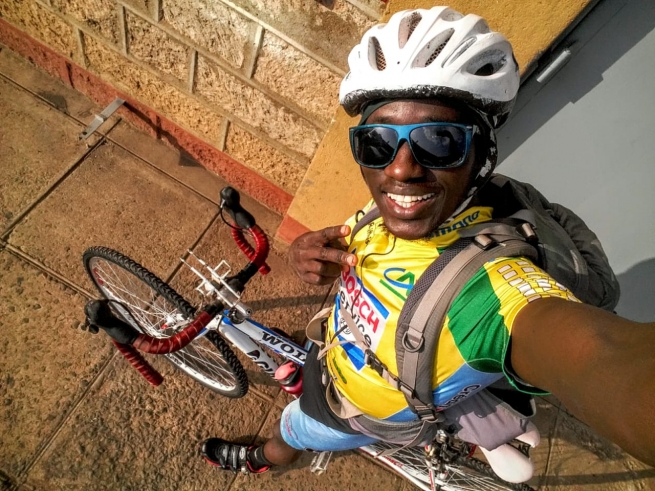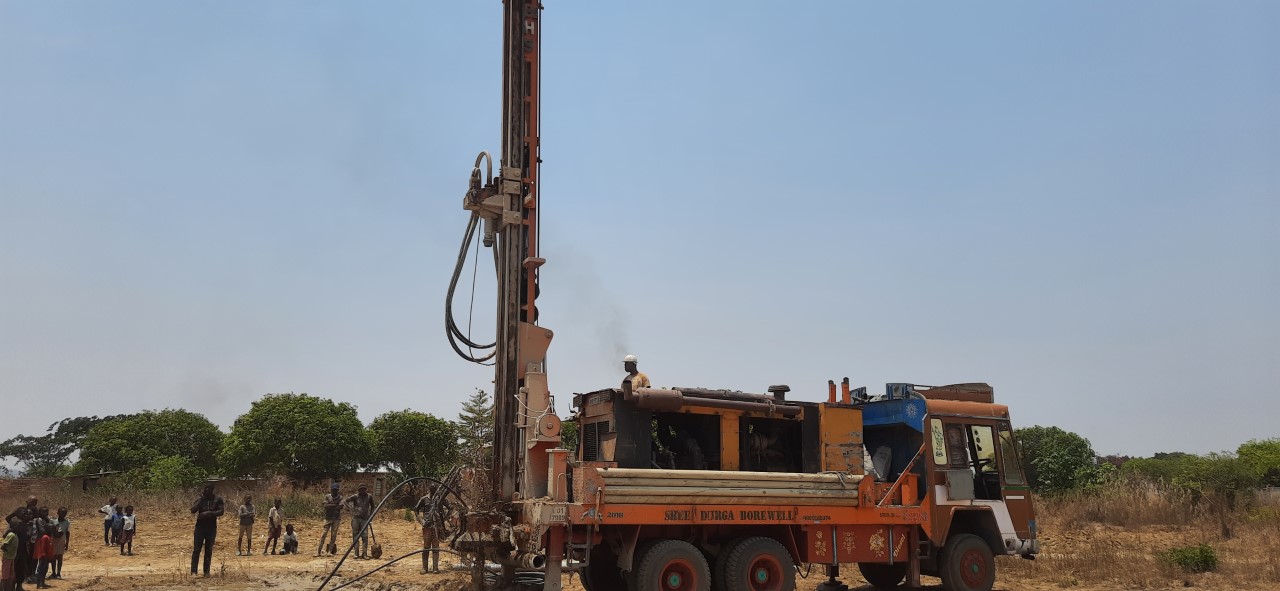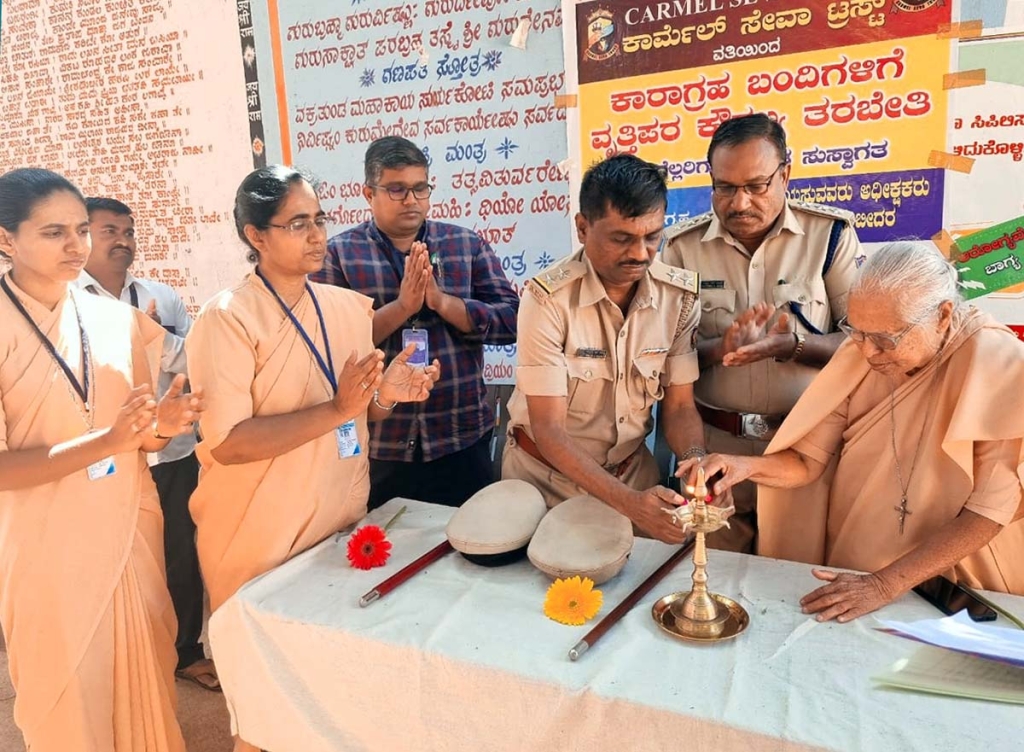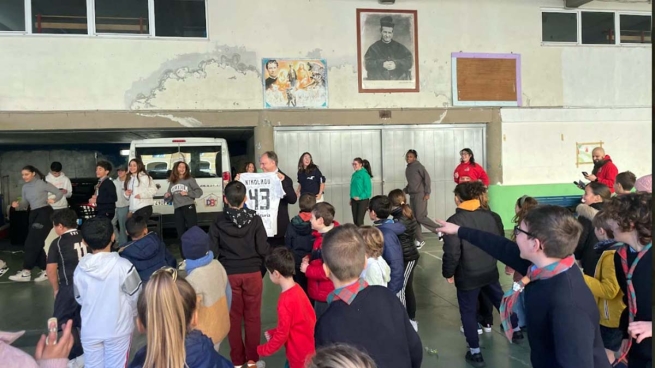KENYA: Salesian teacher encourages his students to do well in school and prepare for a healthy life

(MissionNewswire) Pius Sebastian Mutemi, a 26-year-old Salesian graduate of the Embu Salesian Seminary School, is a welding instructor at Don Bosco Boys Town, located in Nairobi, Kenya. The Salesian-run Bosco Boys program provides education and technical skills training to former street children and is currently serving more than 600 boys and girls in primary and secondary schools and universities. The program also operates two nursery schools in the slums of Kariua and Kuwinda.
When Bosco Boys program participants complete their primary education, they are then assisted with secondary education or are advised to choose technical training in sister institutions. The secondary education is most often provided at Don Bosco Technical Secondary School in the town of Embu, northeast of Nairobi, but can also be at another school close to a student’s home where they can be easily monitored.
Two-year technical training programs are offered through Bosco Boys in a wide variety of vocational skills including tailoring, car engineering/mechanics, carpentry, electrical work and welding as well as secretarial skills and a full spectrum of computer-related job skills. After graduation more than 80 percent of graduates are employed in their fields of study. Many students go on to attend university or establish their own businesses and become entrepreneurs in Nairobi.
Mutemi describes his experience at the school by saying, “I had been to both Salesian school and public school. What surprised me at the Salesian school is the fact that we as learners could actually play soccer with our principal and other teachers, something I had not experienced at a public school. At a Salesian school, there is interaction between learners and teachers. Salesian schools offer learners the opportunity to approach teachers without fear because the teachers are so friendly. At a Salesian school, it’s not just about academics, but we learn about life experiences.”
In addition to the education provided, youth in the Bosco Boys program are given professional counseling to help them overcome any difficulties they may face in their lives. Through counseling and other activities, the program gives youth the tools to develop a positive healthy outlook on life and the education and training necessary to find stable employment.
Mutemi is very involved in cycling and has used the sport as a way to relax and cope with stress and imparts this strategy to his students. He says about cycling, “You feel the freedom when you are on the open road with or without other cyclists. It nourishes you and you feel refreshed.”
He also adds, “The other reason for me being involved in cycling is that I am part of a charity cycle group called Miles of Hope which helps poorer youth with education, especially youth who cannot afford school fees. Every week we cycle as a group and each member must contribute 200 Kenyan shillings which goes towards funding poorer youth.”
Mutemi teaches his students about welding in addition to teaching them about life, how to handle their responsibilities and work hard to achieve their dreams. He says, “I tell youth that we must remember that nothing comes to us on a silver platter. Nothing comes for free unless you put hard work into it. Have a passion for what you do and you will see things moving. I coped with peer pressure when I got involved with cycling because there is no time for idling around. When you are idle, then that is when things like drugs and drinking take over your life.”
It’s a message that Mutemi passes on to his students in the hopes they will value their studies and succeed in life.
Despite the steady growth of Kenya’s economy, according to UNICEF, more than half of the country’s population lives below the poverty line on less than $1 a day. UNICEF also notes that Nairobi is home to 3 million residents, most of whom endure lives of extreme poverty in the city’s slums. The most vulnerable are families and children live in these urban slums and in areas of the country most affected by HIV/AIDS. Many do not have access to healthcare, nutrition, sanitation or education.
Youth living in Nairobi’s slums are at risk for exploitation, forced labor and other abuses. Few attend the later stages of school as compared to those living in Kenya’s more rural areas. The few schools serving this disadvantaged community are beyond the financial means of most families. UNICEF noted that while Kenya has free and compulsory education, youth in poverty still cannot afford to attend school. Close to 90 percent of children from poor households fail to complete their basic education.
###
Sources:
ANS Photo (usage permissions and guidelines must be requested from ANS)
ANS – Kenya – “At Salesian school it’s not just about academics but we learn about life experiences”
UNICEF – Kenya Statistics




